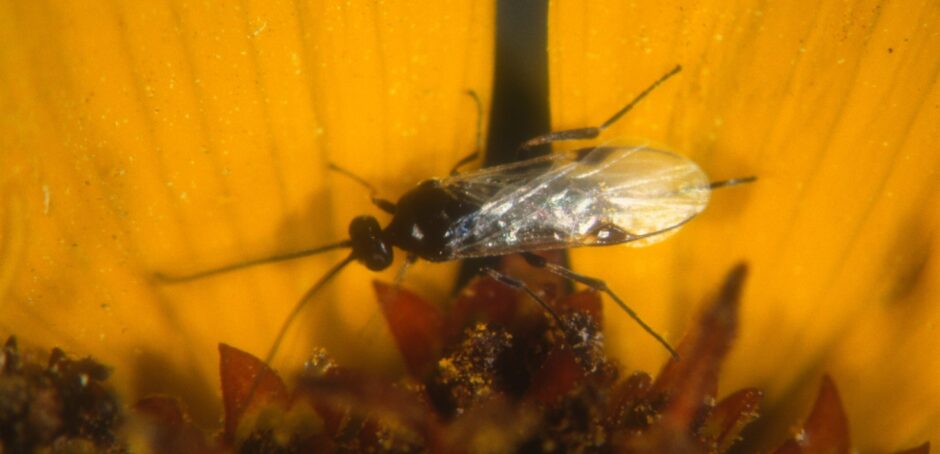Teaching
Fall
PSS 106 Entomology and Pest Management (4)
Survey of the major insect orders, and methods for controlling injurious species. Prerequisites: PSS 010, PSS 021, one semester Biology, or Instructor permission
Learning outcomes
- You will be able to collect and organize your own insect collections, demonstrating competency in using taxonomic keys to identify the major insect Orders and many common families.
- You will be able to identify the major internal and external insect structures that are widely used within insect taxonomic keys.
- You will be able to explain what processes have contributed to the diversification and success of insects.
- You will be able to demonstrate how contemporary pest management practices are based upon a manipulation of insect biology and ecology.
Skills covered in this class: Field observation, collecting skills, and collection curation.
Syllabus: Link to come soon
Spring (PSS 124 and PSS 232 taught on alternate years
PSS 124 Agroecology of Vegetable Crops (3)
This course is designed to encourage students to think critically about the ecology of agricultural systems and evaluate how ecological factors may interact in complex ways to influence biodiversity, pest management, and yield. We will focus on answering the following questions: 1) How do species interactions differ between conventional and organic farms? 2) Why are they different? 3) How can we use ecological knowledge to improve the management of vegetable agroecosystems? Students will be guided in reading research articles and reviews, and extension publications.
Course Objectives
1. Students will be able to explain how conventional and organic agricultural systems differ ecologically.
2. Students will be to explain the ecological basis for sustainable agricultural practices.
Syllabus: Link to come soon
PSS 208 Organic Farm Planning (3)
Course Description
Organic farming is one of the fastest growing sectors in agriculture and many new farmers are attracted to farming as a lifestyle. However, a wide range of business, knowledge and skills are needed to succeed in farming. The challenge for new farmers starting a new farming business is to identify what they don’t know and be able to critically plan a complex farming system that will be financially viable.
Course Philosophy
This course is not meant to teach students everything about agriculture, but is intended to develop skills in planning a farm business. In order to be strategic about their business plans, students need to understand why a farm plan needs to be designed in a particular way, accounting for consumers and competitors. Instead of giving students answers, I focus on fostering critical thinking skills to help students think deeply about designing a farming system. I use the Socratic Method, which has been considered to be the oldest and most powerful teaching tactic. The essence of the Socratic Method is based on posing and answering questions, and questioning both the assumptions and consequences of your farm plan.
Syllabus: Link to come soon
PSS 232 Biological Control (3)
Biological control is the deliberate manipulation of natural enemies to control pests in natural and managed systems. This course explores the theory and application of biological control of insects and weeds. We will focus on the ecological factors that underlie to the success of classical and conservation approaches to biological control of pests.
Course Objectives
- Students will be able to evaluate the relative merits and drawbacks of a classical biological control program.
- Students will be able to design a conservation biological control program.
- Students will be able to design a biological control research program for an invasive species.
Syllabus: Link to come soon
